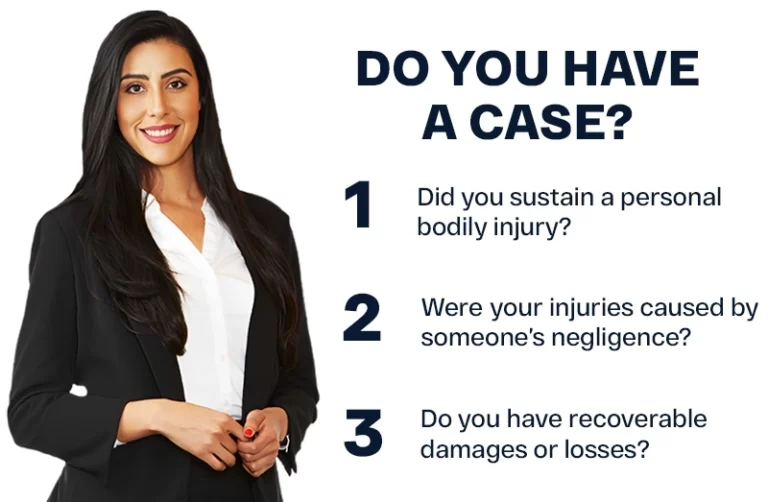Table of Contents
Millions of American workers suffer job-related injuries each year, yet many choose not to report them. According to the Bureau of Labor Statistics (BLS), private-sector employers reported 2.6 million nonfatal injury and illness cases in 2023. However, the actual number may be much higher.
Whether caused by a sudden accident or repetitive strain, workplace injuries affect more than physical health; they can also impact mental well-being, job security, and financial stability. When injuries go unreported, workers may miss out on necessary medical treatment and financial support, putting their recovery and future at risk.
If you’re unsure whether you have a valid claim, consult a workers’ compensation lawyer. They can explain your rights, guide you through the claims process, and help you receive the support you need.
Major Consequences Of Unreported Workplace Injuries
A 2023 study published in BMC Public Health reinforced these concerns, revealing that between 20% and 91% of workers failed to report their injuries or illnesses to management or workers’ compensation programs. The study also highlighted that underreporting is particularly prevalent among low-wage earners, racial and ethnic minority workers, and those in poor psychosocial work environments.
If you suffer an injury at work, even if it’s minor, don’t wait to report it. Delays in reporting may complicate your claim, as insurers could question whether the injury occurred at work. It’s essential to inform your employer right away. Even minor injuries should be reported and treated at the hospital as soon as possible, as they can develop into more serious conditions over time. Waiting until symptoms worsen could lead to more significant problems, and you may miss the chance to file a workers’ compensation claim.
Immediately reporting an injury helps create medical records that align with your workers’ compensation claim. Quick medical attention creates a clear link between the injury and the workplace, strengthening your case.
Reporting your injuries also helps your employer address any unsafe conditions. It allows them to investigate and fix hazards that could harm others. Keeping accurate injury records is vital for improving workplace safety and helps track trends for employers and safety agencies.
Workers have the right to pursue workers’ compensation benefits, but must report the injury promptly. Workers’ compensation is a no-fault system that covers medical bills and lost wages, but delays in reporting can prevent you from getting these benefits. A workers’ compensation attorney can explain your rights and help you file your claim.
Denial Of Workers’ Compensation Claims
Failure to disclose a workplace accident promptly can affect your ability to get workers’ compensation benefits. It is best always to report injuries promptly to protect your rights and increase your chances of receiving benefits. If you file your claim and get denied, you can file an appeal and seek help from a workers’ compensation attorney to guide you through the process.
Here’s what can happen if you delay or don’t report your injury:
- Lack of Documentation — Without a formal report, there’s no proof your injury happened at work. Your employer or insurer may argue that it occurred elsewhere or blame a preexisting condition.
- Skepticism From Insurance Companies — If you wait days to report an accident, insurers may doubt your claim and deny it outright. For example, if you report an injury you sustained from a workplace slip-and-fall accident a week later, the insurance company may assume it didn’t happen at work.
- Worsening Injuries — Delayed medical treatment can make your condition worse. Insurance companies might argue that your injury became more severe because you didn’t seek help immediately. Workplace accident attorneys can explain how this can impact how much compensation you can pursue in your claim.
Loss Of Benefits
Imagine you sustain a work injury, and you’re unable to continue working while you recover. Workers’ compensation benefits help cover your medical expenses and replace lost wages during this time. However, you risk losing these critical benefits if you don’t report your injury in time. Without timely reporting, you may face significant financial strain as you attempt to recover, making it even more challenging to regain your footing.
Workers’ comp benefits can include:
- Medical Expenses — Covers doctor visits, hospital stays, medications, and treatment for your injury.
- Lost Wages — Compensates for missed work due to hospitalization, impairment, or treatment schedules.
- Transportation Costs — Reimburses travel expenses for medical appointments related to your injury.
- Disability Benefits — Payments in case of temporary or permanent impairment.
- Career Rehabilitation — Helps retrain or support you if you can’t return to your previous job.
Insurers often scrutinize injury reports submitted late, questioning whether the injury was work-related. Additionally, waiting to report can complicate your medical treatment. To protect your benefits, report your injury as early as possible and speak with your employer about your treatment options. You can also contact Arash Law for legal guidance.
Legal Obligations Of Employers In Reporting Workplace Injuries
Your employer must report a work-related accident and file a First Report of Injury or Illness with their workers’ compensation insurance provider. Most states mandate that businesses carry workers’ compensation insurance, and failure to report injuries can violate state laws. Employees should be familiar with their company’s incident reporting procedure and must report all work-related injuries as soon as possible.
The Occupational Safety and Health Administration (OSHA) sets clear standards for injury reporting in the workplace. Employers must implement a fair and accessible process that does not discourage or deter employees.
If an employer does not report a workplace injury, they could face:
- Fines and Penalties — Violating workers’ comp laws can result in heavy fines.
- Civil Liability — This may apply to fraud, gross negligence, or intentional misconduct (e.g., deliberately concealing workplace injuries or retaliating against injured workers).
- Licensing Issues — Businesses may lose certifications or face restrictions.
If your employer fails to report your injury, it can lead to delays or even the denial of your workers’ compensation benefits. Missing reporting deadlines can also hurt your case, as workers’ compensation claims have strict filing deadlines. If you wait too long, you may run out of time to take action.
If your employer’s workers’ comp insurer denies your claim, a workers’ compensation lawyer can help you challenge the decision. Legal action may be necessary, but delayed reporting can weaken your case and limit your options in court. You must always report your work-related injury immediately.
Contributing Factors To Workplace Injury Underreporting
Workplace injury underreporting stems from the factors listed below:
- Severity of Injury — Research shows a strong correlation between higher severity and increased likelihood of reporting to workers’ compensation programs.
- Sociodemographic Factors — Age, education, race or ethnicity, and income level play a role in reporting. Meanwhile, gender findings were inconsistent. Here are some notes from BMC Public Health’s study:
- Older workers were more likely to file a workers’ compensation claim.
- Workers from racial or ethnic minority groups are less likely to report injuries to management but more likely to file a claim.
- Researchers linked lower annual income and marriage to higher injury reporting rates.
- General Health Perception — Workers who believed they were in good overall health were less likely to report injuries. Being overweight was linked to a higher likelihood of reporting workplace injuries to workers’ compensation programs.
- Reporting Awareness — Knowledge-sharing and peer experiences are critical in promoting compliance with injury reporting protocols. A study involving 699 surgeons found that those who had not heard about reporting processes from their colleagues were significantly less likely to report workplace injuries to management.
- Job and Employment Factors — Workplace conditions, job roles, and employment structures closely influenced injury-reporting behaviors, including the following:
- Employees working long shifts were less likely to report injuries.
- Night shift workers reported injuries less frequently than daytime employees.
- Workers with longer job tenure were more likely to report injuries.
- Certain occupations (nurses, nurse aides, security guards, and labor-intensive workers) had higher reporting rates.
- A favorable work climate and supervisor support all contribute to increased reporting of injuries.
- Access to Medical Treatment — Employees seeking treatment from external providers were more likely to file workers’ compensation claims than those treated by company-affiliated healthcare providers.
Why Employees Hesitate To Report Workplace Injuries
Many employees fail to report injuries at work. Research shows there are various reasons why workers don’t report workplace injuries, including:
- Fear of Negative Consequences — Fear is among the most common reasons for underreporting workplace injuries. Employees, especially in industries with a strong workplace hierarchy or where job security is a significant concern, worry about potential repercussions, such as:
- Missing out on promotions or losing their jobs.
- Discrimination and poor reputation.
- Negative peer behavior, especially in team-based environments.
- Time-Consuming Reporting Process — Reporting can be complicated and time-consuming, which may deter workers from filing a report. Employees may be concerned that taking time off for reporting or medical care could impact their workload, job security, or pay. In fields like construction, the cost of unpaid time off for doctor visits makes reporting even less appealing.
- Lack of Knowledge About Reporting — Some workers do not know where, how, or to whom they should report an injury. Additionally, uncertainty about whether an injury is work-related can discourage reporting. Some employees also lack awareness of their legal rights, preventing them from seeking compensation or medical care.
- Assumptions About the Nature of Injury — Many employees avoid reporting injuries because they think the injuries are minor or just part of their job. They often feel they can treat themselves with home remedies, over-the-counter pain relievers, or by resting instead of going to see a doctor. However, some small injuries can worsen over time if not treated properly.
- Management Distrust — Employees often hesitate to file injury reports when they don’t trust management or the reporting process. They worry that reporting won’t lead to real action or follow-up, and some fear retaliation from their employers.
Frequently Asked Questions About Workplace Injury Reporting
Understanding your rights and options is crucial when dealing with a workplace injury. Having the correct information helps you make informed decisions about your next steps. The workers’ compensation attorneys at Arash Law are here to help. If you have more questions, call (888) 488-1391 for a free initial consultation.
How Much Does A Workers’ Compensation Lawyer Cost?
At Arash Law, our workers’ compensation lawyers work on a contingency fee basis, meaning you pay no upfront attorney’s fees. Our fee is a percentage of the recovery we obtain for you.
If you believe you have a valid claim, complete our “Do I Have A Case?” form. We can discuss the details of your case for free. Then, we can provide a clear understanding of what to expect and work to keep you informed throughout the process. We’re here to advocate on your behalf so you can focus on recovering and moving forward.
Does Delayed Discovery Of An Injury Affect My Workers’ Compensation Claims?
If an injury develops gradually, you can still be eligible for workers’ compensation. People might not notice these types of injuries, known as cumulative trauma, immediately. For example, repetitive tasks like using a computer daily can lead to conditions like carpal tunnel syndrome, or constant lifting may result in back problems.
Each state has different time limits. California’s statute of limitations for workers’ compensation claims is one year from the injury date. For cumulative trauma, the clock starts when you realize or should have realized the injury was work-related. At that point, you should report the injury and seek assistance from a workers’ compensation attorney to begin your claim.
How Long Does An Employee Have To Report A Work-Related Injury?
After suffering a work-related injury or illness, you might ask, “How long do I have to report what happened?” The deadline varies depending on the state in which you live. In California, you must report the injury to your employer within 30 days of the accident, according to the Department of Industrial Relations (DIR). If injured employees fail to report within this time frame, they might face challenges in recovering compensation, including losing their right to receive workers’ compensation benefits. If you need legal help, contact a workplace injury lawyer.
Can I Sue My Employer If They Fail To Report My Injury?
The exclusive remedy rule generally prevents you from suing your employer for workplace injuries, even if they failed to report them. This rule makes workers’ compensation your sole legal recourse, offering benefits (medical, lost wages, etc.) in exchange for giving up the right to sue (with a few exceptions, like intentional acts or lack of insurance). File a workers’ comp claim directly with your state. You can sue a responsible third party. Consult an employment lawyer, especially if your employer didn’t report the injury or if you think an exception applies.
Do I Need A Workers’ Comp Attorney?
If you’re considering a personal injury lawsuit, an injury lawyer can evaluate your case, file a claim, and help you pursue compensation for your injuries. A workers’ compensation attorney can assist if your employer fails to report your injury or denies your claim. If you’re unsure about your rights, consulting a workers’ compensation lawyer is advisable to help you determine your next steps. Furthermore, they will assist you in pursuing appropriate compensation in your personal injury case.
How Long Does A Workers’ Compensation Claim Take?
The duration of a workers’ compensation claim can vary widely. Straightforward claims may be resolved within a few weeks, while more complex cases, especially those involving permanent disability, can take several months or even years to settle. The process’s length depends on the injury’s severity, whether your employer disputes the claim, and state regulations. Working with a workers’ compensation attorney can help speed up the process and guide you through the claims process from beginning to end.
Is It Better To Settle Or Go To Trial?
Deciding whether to settle or go to trial depends on your situation. If you need immediate funds to support your family, accepting a settlement may help ease the financial burden. On the other hand, if you want to hold your employer accountable and bring their actions to light, a trial may be the right choice.
Here are a few factors to consider:
- The amount and terms of the settlement offer.
- The evidence in your case.
- The potential stress of a trial.
- Any counterclaims or risks involved.
The decision is yours. However, it’s also ideal to consult a workers’ compensation lawyer who can guide you through the process and help you understand the pros and cons of each option. Settlements typically provide compensation, while trials carry more risk but could lead to a larger payout. Our personal injury lawyers can also help you evaluate settlement offers.
Let Our Workers’ Compensation Lawyers Help With Your Workplace Injury Claim
If you’ve suffered a workplace injury and haven’t reported it yet, time is of the essence. Failing to report can result in delayed or denied workers’ compensation benefits. You don’t have to navigate this process alone. If you’re wondering, “Do I need a personal injury lawyer?” a consultation can help determine if a personal injury lawyer is right for you.
Arash Law, a dedicated personal injury law firm serving clients in California, can help you understand your rights and pursue compensation for your workplace injury. Our team of workers’ compensation attorneys can guide you through the process, helping you obtain the medical and financial support you need. With decades of experience, our team has the resources and experience to handle complex personal injury cases, including workplace accident claims. We provide support to clients that can help them get back on their feet after an injury.
As our car accident lawyers advocate for auto accident victims, we will represent you in your workers’ compensation case. Don’t let an unreported injury jeopardize your future. Contact us today at (888) 488-1391 for a free initial consultation.











